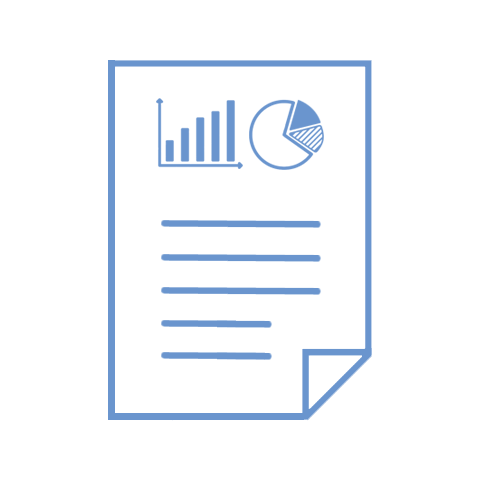EA Newsletter September 6, 2018
September 06, 2018

We hope you had a good summer/winter.
Happy reading.
The team
Articles and Community Posts
New videos from the recent EA Global are being uploaded twice a week. Our picks so far:
- Holden Karnofsky Fireside Chat
- Intrinsic Values - Spencer Greenberg
- Crucial Considerations in Wild Animal Suffering - Persis Eskander
To do more good, we sometimes have to assess which scientific results are actually true. A new Nature study found that experts can often predict which results are reproducible. Can you predict as well as the experts? Take the quiz.
Saulius Šimčikas wrote up an interesting report on a promising niche area for animal welfare: regulating the use of bait fish.
Learn about the current estimates for the likelihood of human extinction, then compare against the results of the recent study over public opinion on existential risk.
Joey Savoie surveyed 30 leaders and researchers in the animal advocacy movement on where and how to have the most impact. Promising: corporate outreach, research and creating animal product substitutes. Less so: consumer outreach.
Have a look at this collection of the top 50 EA Facebook group posts ranked by the total number of reactions.
Updates
80,000 Hours 80,000 Hours hired Michelle Hutchinson (former Executive Director of GWWC & Operations Director at GPI); released updates to their job board, problem profiles page; and completed their monthly goals. They also released podcasts with David Roodman from Open Phil, Katja Grace on forecasting AI, and Spencer Greenberg on practical bayesianism, reaching 10,000 subscribers.
Centre for Effective Altruism CEA shared its thinking about community building, representativeness, and the EA Summit, partly in response to this post by Joey Savoie. They emphasized, among other things, the reasons they feel it is important that the EA community be cause-impartial and why it seems likely that CEA’s work should be broadly cause-general.
Center for Human-Compatible AI
CHAI hired an Admin Officer, Brandon Perry, and they are currently hosting 7 interns. A course on Safety and Control for Artificial General Intelligence led by CHAI’s Stuart Russell and Andrew Critch and supported by CHAI researchers launched at UC Berkeley last week. CHAI student Daniel Filan spoke at the Human-aligned AI Summer School in Prague.
Centre for the Study of Existential Risk CSER’s special issue Futures of Research in Catastrophic and Existential Risk was published. Edited by Adrian Currie, it brings together a wide range of research on existential and catastrophic risk. CSER co-founder Lord Martin Rees was interviewed by the Sunday Times about his new book, On the Future. Researchers attended the 2018 Joint Multi-Conference on Human-Level Artificial Intelligence and the Biological Weapons Convention 2018 Meetings of Experts (reports).
Charity Entrepreneurship
Charity Entrepreneurship released a quiz to test your fit for founding new charities (for example the next GiveWell or ACE recommended charity) and published a survey of animal rights experts. They also hired a senior research analyst and several interns to work on animal advocacy and global poverty research.
GiveWell
GiveWell wrote about their decision to not use subnational malaria mortality estimates in their cost-effectiveness models. GiveWell also published a page on a $150,000 grant to One for the World, an organization that does outreach to university students encouraging them to pledge a percentage of their incomes to effective charities.
Open Philanthropy Project The Open Philanthropy Project announced grants of $7,941,372 to the Future of Humanity Institute to support work on AI, biosecurity, and macrostrategy, $515,000 to enable five early-career people to pursue work and study related to global catastrophic biological risks, and $400,000 to the Wilson Center to support AI policy seminars.
The Life You Can Save On TLYCS’s blog, follower Andrei Smith relates how incorporating effective giving into his work as an Audi salesman has brought meaning to both himself and his customers – and funds to effective charities – in How to Stay Positive in Sales – Charity for Laser Focus.
Wild-Animal Suffering Research WASR released their first biannual project evaluation covering the first six months of 2018. It covers their accomplishments, mistakes and priorities for the rest of 2018.
Timeless Classics
"A single death is a tragedy; a million deaths is a statistic.” This quote (commonly attributed to Joseph Stalin) expresses an unfortunate human tendency called the "identifiable victim effect", where individuals tend to offer greater aid when a specific, identifiable person is observed under hardship, as compared to a large, vaguely defined group with the same need (Wikipedia).
Paul Slovic published an important paper about “psychic numbing” and genocide in 2007, in which he used the phrase “the collapse of compassion” due to the identifiable victim effect. Vox conducted an informative interview with Paul last year.
Our speculation: The identifiable victim effect may also play a role in why people tend not to think much about preventing harm to future generations. It might also affect how we view saving strangers far away as opposed to a drowning child right in front of us.
Announcements
EA Global: London Limited tickets remain for EA Global: London, which takes place on 26-28 October 2018. So if you’re interested in attending, apply now.
Wild-Animal Suffering Research The Wild-Animal Suffering Research project is running a grants competition. It is open to independent and academic researchers and students comfortable doing research in animal welfare science, biology or ecology. They are planning to grant $35,000 in total among a small number of proposals. Applications close on 16 September 2018.
Jobs
ACE, Executive Director, remote
Against Malaria Foundation, Data Analyst, remote
CFI, Programme Director, Cambridge
CHAI, Machine Learning Engineer, Berkeley
Charity Science Entrepreneurship, Senior Research Analyst, Vancouver
Charity Science Health, Operations Officer, Vancouver
CSER, Postdoctoral Research Associates, Cambridge
EA Foundation, Research Analyst and Operations Analyst, Berlin
Evidence Action, 15+ jobs, various countries
Founders Pledge, various jobs, London, New York, San Francisco
GiveDirectly, Chief of Staff, New York
GiveWell, (Senior) Research Analyist, San Francisco
GPI, Head of Research Operations, Oxford
OpenAI, Policy Researcher, San Francisco
Rethink Priorities, Junior/Senior Researchers, remote
Go forth and do the most good! Let us know how you liked this edition and how we can improve further.
If you’re interested in past editions of this newsletter, here is the full archive
Get Involved in Effective Altruism
The Effective Altruism Newsletter is a joint project between the Centre for Effective Altruism, and Rethink Charity.
This is an archived version of the EA Newsletter sent to 49,118 subscribers on September 6, 2018. To see the full archives, click here.
- CEA shared its thinking about community building, representativeness, and the EA Summit, partly in response to this post by Joey Savoie.
- Many EA organizations are hiring. Relatedly, 80,000 Hours has updated their job board, which now includes many more openings.
- New videos from the recent EA Global are being uploaded twice a week.


